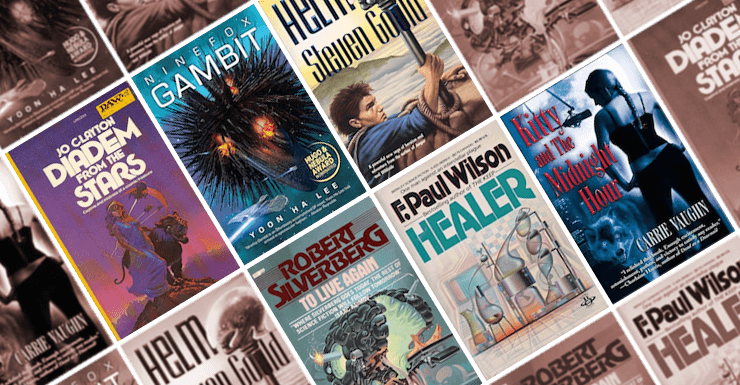I have a modest dream. I hope one day to live in an isolated skull-shaped mountain guarded by carnivorous birds. My lair would be surrounded by a fearsome fence, adorned with the heads of uninvited guests. I like my privacy. It should not surprise anyone, then, that I would emphatically NOT like to have a second person sharing my head.
Mental timeshares are a rich source of plot for science fiction and fantasy authors. I was reminded of this trope when I was reading, or re-reading, a few novellas in Lois McMaster Bujold’s Penric series.
Penric is a sorcerer. He has no power of his own; he owes it all to the demon who shares his head. The demon (whom he calls Desdemona) has been a sorcerer’s demon for many lives. When one host dies, Desdemona jumps to another one. In the world of the Five Gods, this process is controlled and used for good. Penric acquired his demon by mere chance, but he has become a considerate and talented host; the two are an effective team. Their adventures fill an ongoing series that is, as of this date, all of six novellas long.
What other head-sharing SFF have I read of late?
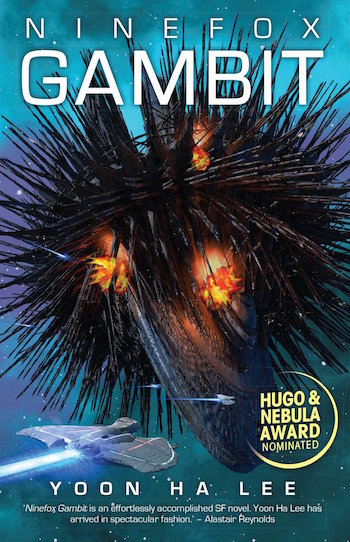
Yoon Ha Lee’s Captain Kel Cheris, in the Machineries of Empire series, is both brilliant and expendable. She is therefore chosen as host to the stored memories of the noted military genius and homicidal maniac Shuos Jedao. She is not allowed to refuse. Cheris and Jedao manage to work out a modus vivendi, one that changes both in dramatic ways. I won’t say more, lest I spoil the series for you—I think it worth reading.
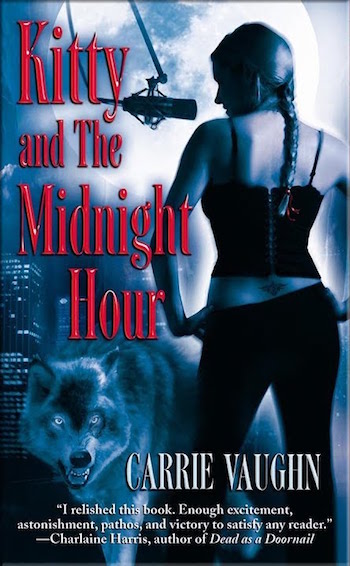
Cormac began as a supporting character in Carrie Vaughn’s Kitty Norville series. He is a mundane human with an inordinate talent for hunting and killing monsters. The American judicial system takes a surprisingly dim view of Cormac’s prudent custom of gunning down people he deems a threat and sends Cormac off to a stint in prison. A haunted prison, to be exact—at least of one of whose ghosts makes a compelling case that Cormac should serve as their new home.

The glass helm in Steven Gould’s Helm was stored on an unclimbable mountain peak for very good reason. It is the last surviving imprinter, a device that downloads the knowledge and personality of a long-dead scientist and martial artist. It can also be configured to enslave others; it can be abused. Leland de Laal decides (for what seem like good reasons at the time) to recover and don the helm. This act will transform him, set his life on a new trajectory, and alter the course of history on the colony world Agatsu.
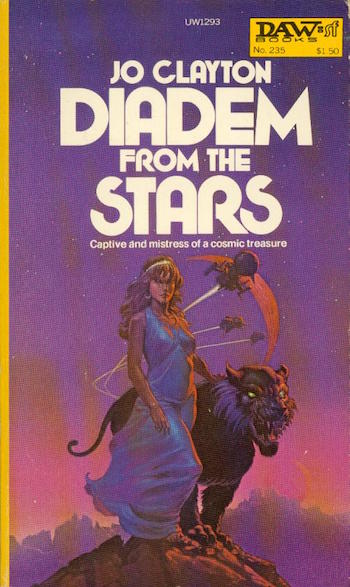
Jo Clayton’s Diadem books are SF (of the handwaving superscience variety) rather than fantasy. Like Penric and Cheris, the protagonist Aleytys didn’t agree to have the recorded memories of several dead people installed in her head. All she did was don a mysterious alien artifact without asking sensible questions like “Is this a powerful psionic device in which are stored the minds of the deceased?” or “Will I discover that, having donned this stupendous example of alien technology whose owners no doubt want it back, it cannot then be removed?” Yes to both! There’s probably a lesson to be learned here.
Being a Diadem-wearer complicates Aleytys’ life, but the people preserved in it do try to be helpful. Which can be surprising and disconcerting, as they sometimes help by commandeering Aleytys’ body.
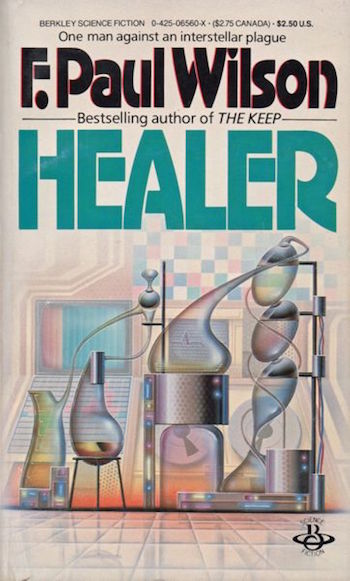
In F. Paul Wilson’s Healer, protagonist Steven Dalt takes shelter in a cave on a backwater world. What he does not know: caves are often home to lifeforms called alarets. Alarets love to drop down on people and infiltrate their central nervous systems. In nine hundred and ninety-nine cases out of a thousand, this is immediately fatal to both alaret and host. Dalt and his new companion Pard are the one thousandth case. Now the symbiotes are immune to disease, age, and the occasional blaster bolt to the heart.
Dalt and Pard experience a thousand years of life under the LaNague Federation. The Federation spans the stars and the millennia; there are golden ages and periods of decline. All too often, its people repeat ancient errors. Human minds did not evolve in the context of immortality and Dalt begins to find his long life a burden. He would end it if he could, but … unlike Desdemona or the beings in the Diadem, Pard cannot survive his host’s death. He is unlikely to let Dalt die….
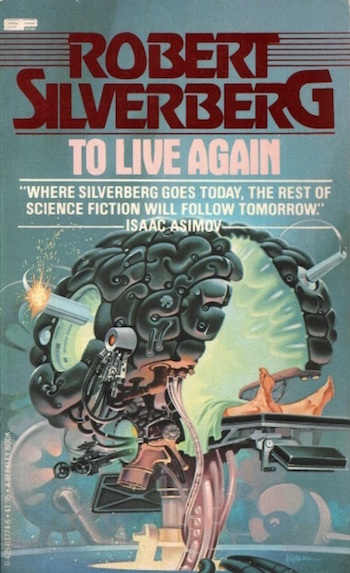
In Robert Silverberg’s To Live Again, people choose to host other people’s minds. They aren’t surprised by new tenants they did not select: The tenants are rich folk who map their minds before they die, in the hope that someone will later give them house-room. Fashion (and the utility of many of the stored minds) ensures that volunteers will cheerfully present themselves.
Some of the dead possess skills and knowledge that make them a useful tenant. There are a few, however, who aren’t content to ride in a new body; they want to drive.
Possession, partnerships, nightmares, and augmentation: sharing one’s brain can provide characters with all of those options and more. You still couldn’t get me to try it. Give me my magnificent skull-shaped solitude any day.
In the words of Wikipedia editor TexasAndroid, prolific book reviewer and perennial Darwin Award nominee James Davis Nicoll is of “questionable notability.” His work has appeared in Publishers Weekly and Romantic Times as well as on his own websites, James Nicoll Reviews and Young People Read Old SFF (where he is assisted by editor Karen Lofstrom and web person Adrienne L. Travis). He is surprisingly flammable.










